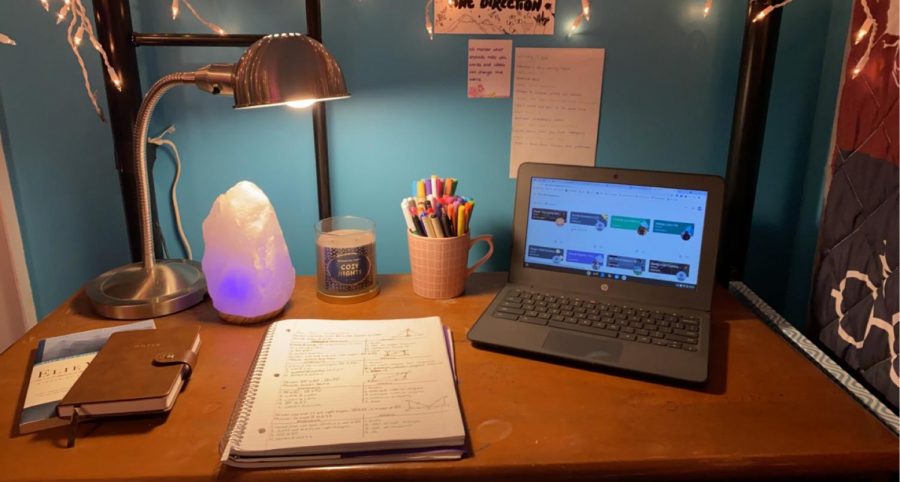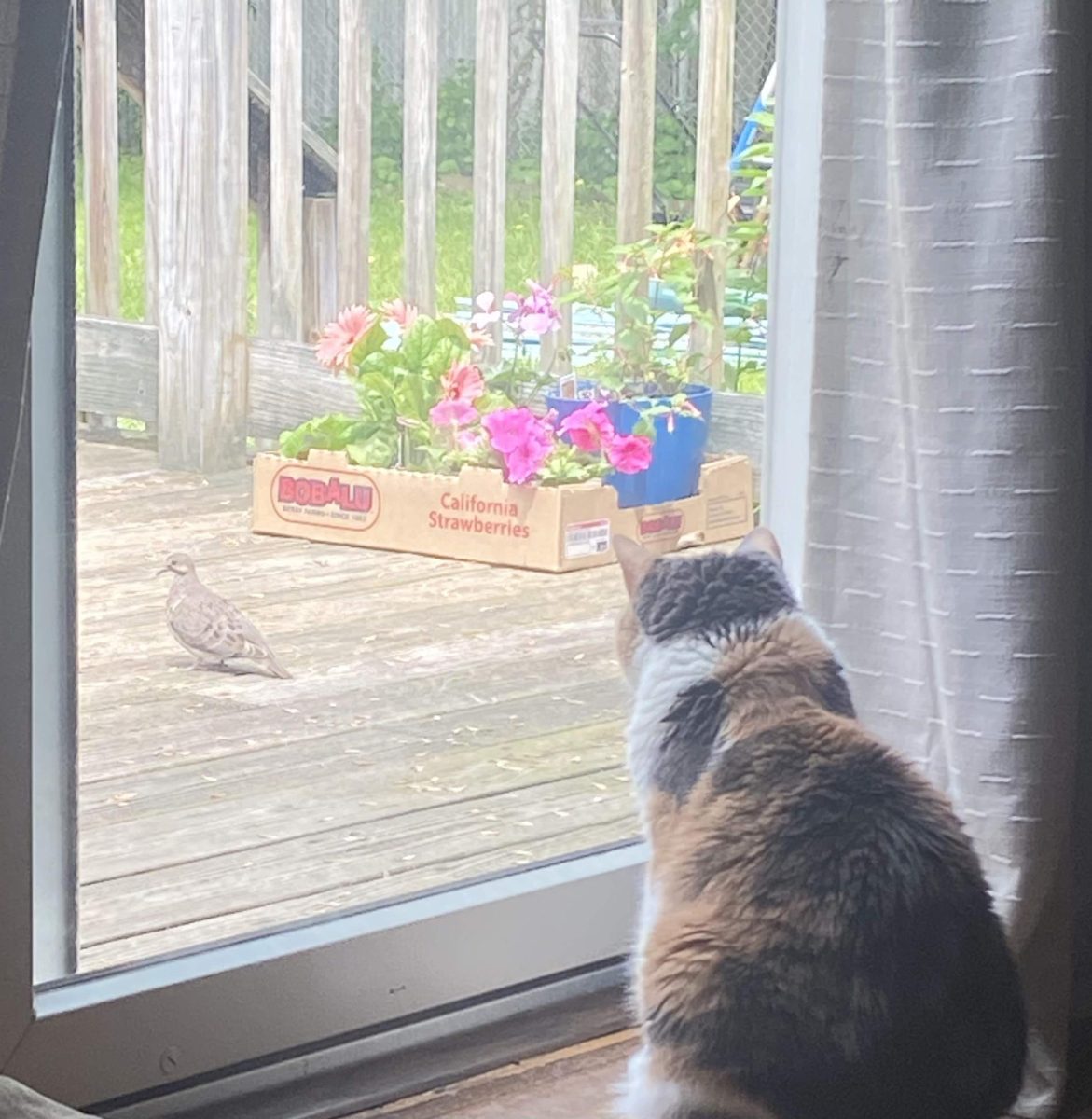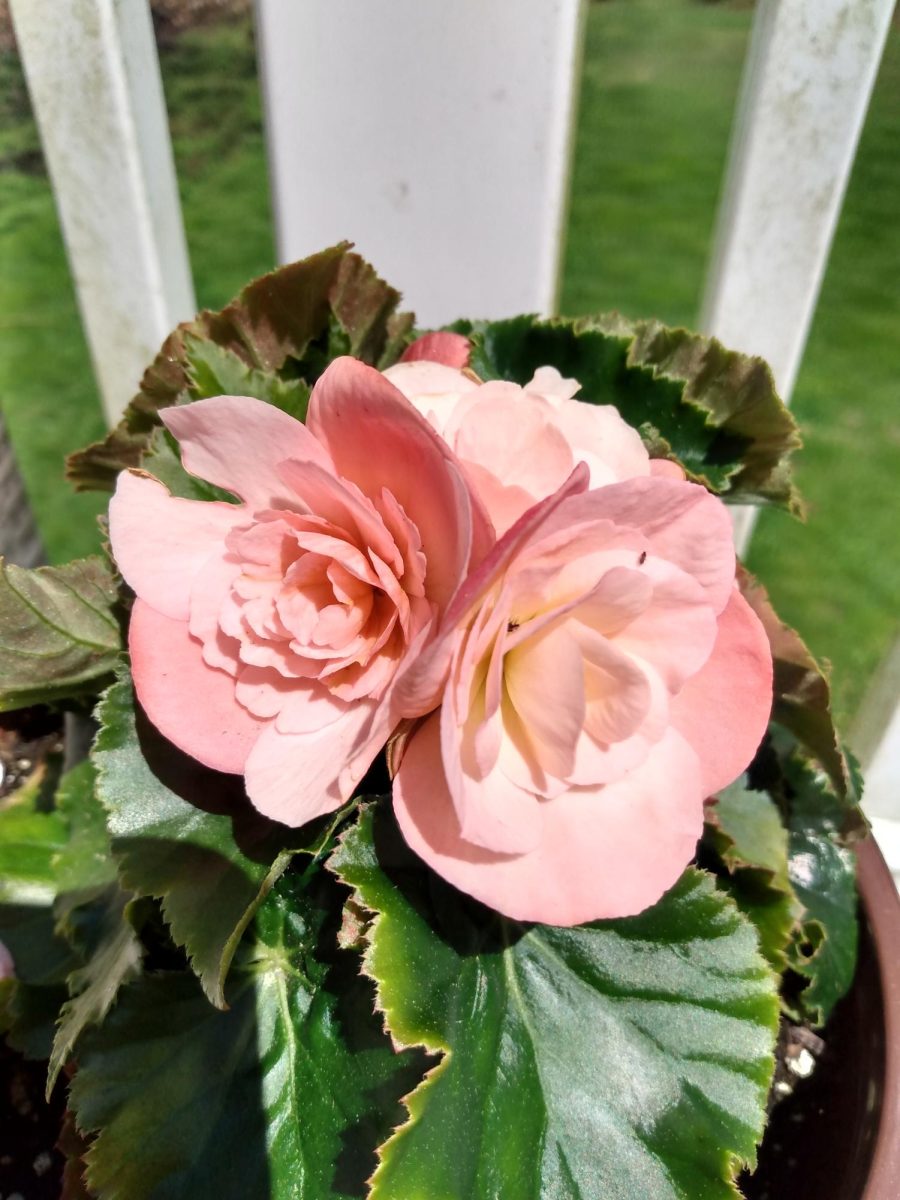How To Be More Organized
March 4, 2021
Being organized can include beneficial results for many people. Too much clutter, events that need to be remembered, and the work piling up often causes unnecessary stress and anxiety.
Organization usually makes life easier. It can help to get work done faster, keep work and different subjects in one place, and help to be less stressed about the future.
Simply being in an area filled with clutter can be stressful. One way to reduce that stress would be to set aside 10 to 15 minutes each day to put away stray items or declutter an area, such as a desk. Practicing picking things up immediately after using them can also be beneficial. Boxing up extra items that aren’t frequently used may help, because it will be clearing a space that doesn’t need to be filled. Making sure that everything in the area has a place to go is also important and will make it easier to put things away.
Decluttering can also have just as much of an effect on a person’s health as it does on their physical space.
The Mayo Clinic says, “[W]omen who used more words describing clutter and disorganization also tended to show levels of the stress hormone cortisol, suggesting chronic stress. On the flip side, those who described their homes as being restful or talked about their beautiful outdoor spaces were less stressed and reported less sad feelings as the day went on.”
Deadlines and dates are a large part of disorganization. Relying on memory is not a good strategy- it would be more useful to write things down. The Notes and Reminder apps are both useful, as the small notes and reminders normally kept in memory can always be brought back up rather than forgotten. A whiteboard calendar also might be helpful for keeping track of dates and upcoming events.
Freshman Kelly Aspras says, “Organization is especially important for students because it helps keep you on task and get assignments in on time, so it can be good for grades too.”
Schedules are also a significant tool, especially for students or those in a line of work that includes deadlines. Making up a list of everything that needs to be done and when there is the time to do it can also help people with a busy schedule.
To-do lists can sometimes be hard, especially when procrastination is a setback. A tip that may be helpful is to add as many points to the list as possible. For example, if there are four chapters of a book that need to be read, list each chapter separately. That way, there is a feeling of accomplishment for crossing off four separate points, rather than just one. It also allows space for small breaks, rather than feeling like there is a need to complete the full assignment at once.
Taking breaks between assignments is also important. Burnout is a very real thing, and never letting your mind rest is not healthy.
MIT Study Tips suggests that studying in one hour blocks is the most productive, with 50 minutes of studying and a 10 minute break.
If a person is dedicated to the task during the 50 minutes, the 10 minute break after is completely removed from the work. This gives the brain time to disengage and leave a feeling of refreshment, but not too long of a break that will cause a loss of focus.
Procrastination is a very common hitch in being organized. One distraction often seen in students is phones. Having them nearby while trying to do homework is a disturbance, and leaving them in a different room would be the most helpful option. Another good resource is the Screen Time option, where it will lock a phone if the time limit is exceeded.
Color coding is a popular form of organization. It helps to distinguish between different concepts, such as using different colors for different school subjects. Varying the colors while taking notes can also be helpful to see the different ideas and more or less important information.
Creating a weekly or weekend bucket list can also be beneficial. It will keep extra time focused on tasks that are productive and favorable to the person.
Todd Williams, the psychology teacher at Foran, says he is very organized, “borderline obsessively. It saves a ton of time, and I have everything organized down to where the bulbs are in the building. If I forget something I know exactly where to go to get it.”








